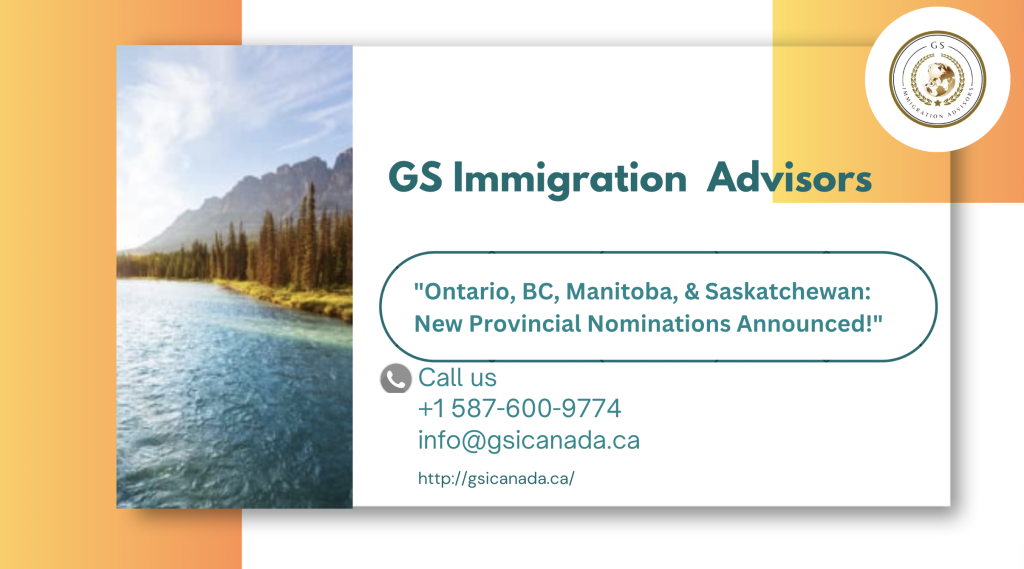
Canada has long been a popular study destination for international students due to its well-regarded universities, multicultural population, and availability of international work experience.
An applicant’s chances of obtaining permanent residence (PR) in Canada may also be increased by obtaining a Canadian education and qualifying job experience. This is due to the fact that overseas students who complete their studies at a Designated Learning Institution (DLI) are eligible for more points under Canada’s Express Entry system, which increases their pooling power.
However, obtaining an education in Canada does not ensure that one will be granted permanent residence. Although there are various options for graduates to work and settle in Canada, these options depend on a number of variables, such as the candidate’s vocation, abilities, and qualifications.
Canada has also been making adjustments to its immigration laws in recent months to better align them with the demands of its labor market. The transfer from a study visa to permanent residency may be more difficult as a result of this and the growingly competitive pool of eligible applicants.
Here are some tips to help overseas students earn as many points as possible if they hope to live in Canada in the future.
Stay up to date with changing immigration policy
Immigration policies in Canada are subject to change depending on the country’s economic needs.
For an international student planning on applying for permanent status in the future, it can help to remain informed of eligibility criteria for different programs.
For example, earlier this year the government announced that international students who have enrolled in a study program with a curriculum licensing agreement will no longer be eligible for a Post-Graduation Work Permit (PGWP) upon graduation.
This is a style of study program offered by a private college that has been licensed to deliver the curriculum of an associated public college. These programs often have less oversight than those delivered by public colleges.
Students who intend to use their PGWP to gain work experience in Canada should find out which academic programs qualify for PGWP after graduation.
Select careers that are in demand.
Canada introduced category-specific Express Entry lotteries in 2023 with the goal of highlighting in-demand professions and skills. Among these are the following professions:
- Medical Care
- STEM stands for science, technology, engineering, and math.
- Exchange
- Move around
- Agri-food and agriculture
If a certain professional route piques the interest of the students, they can seek qualifications in one of the category-based draws.
For example, a student can pursue a career in STEM such as architecture, engineering, data science, or web development to increase their chances at the Express Entry draw. However, these categories are subject to change though and do not guarantee permanent residency.
Research Provincial Nominee Programs
Every province and territory, with the exception of Quebec and Nunavut, operates Provincial Nominee Programs to attract skilled workers to the province.
An overseas student may also check if they are eligible for a province nomination if they believe their Comprehensive Ranking System (CRS) score is insufficient and/or they are not eligible for a category-based draw.
There are two ways to immigrate under a PNP: the first is through Express Entry, where qualifying individuals can apply for PR under Express Entry by receiving an extra 600 CRS points from the province (a procedure called as enhanced nomination). Directly via a PNP stream is an additional path (base nomination)
Students can choose from more than 80 different province economic stream programs, which makes this an excellent chance for individuals wishing to work and study their way into permanent residence in Canada.
That said, PNP criteria may change depending on the province’s economic priorities.
Improve both language abilities
Canada has two official languages – English and French – and being bilingual has many benefits in the PR process.
One way for an international student to increase their CRS score is to maximize the number of points they can receive in their primary language. They can do this by retaking language tests like IELTS or CELPIP (for English) if they don’t hit the highest score the first time.
Learning a second language also adds valuable points to a candidate’s CRS score which can help them get an Invitation to Apply (ITA).
Apart from that, Canada also launched French language proficiency category-based draws, and there has been a huge focus on these draws in 2024—a trend that is expected to continue in 2025 and 2026. To be eligible, candidates must possess a minimum score of 7 in all four language abilities (reading, writing, speaking and listening) on the Niveaux de compétence linguistique canadien (NCLC).
Validate all degrees
Canada’s Express Entry system awards points for education. If a student has more than one degree, but it is done outside Canada, they could get this validated by one of the designated organizations approved by the Canadian government (like WES).
International students can also look at enrolling in an eligible degree or program within the country to improve their prospects.